A winning strategy for the North East
This paper examines the political & economic landscape of North East India and explains how diplomacy, policing and development brought peace to Assam and the North-East
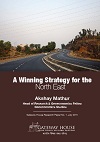 Courtesy: Gateway House
Courtesy: Gateway House
This paper examines the political & economic landscape of North East India and explains how diplomacy, policing and development brought peace to Assam and the North-East

Five young Pakistani fishermen, held in a Mumbai jail, received a pleasant visit from a rather unusual couple of citizens - 18-year-old Ria Mirchandani and 80-year-old Sarla Kripalani. In this realm of diplomacy, the citizens of India and Pakistan are taking action.
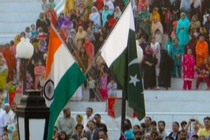 Courtesy: DanielHauptstein/WikimediaCommons
Courtesy: DanielHauptstein/WikimediaCommons
Although the Indo-Pakistan foreign secretary talks did not grab all the headlines, bilateral relations have seen notable developments. The former single-minded approach to discuss terrorism was modified, in turn allowing both nations to progress in terms of friendly and nuclear confidence building measures.
Gateway House´s Jonathan Yang, Summer Associate and Bombay newcomer, finds an unexpected beauty in the daily chaos of the city.
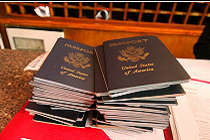 Courtesy: FourthFloor/Flickr
Courtesy: FourthFloor/Flickr
Despite their economic downturns, domestic tensions keep developed countries from embracing the revitalizing potential of foreign workers. Ambassador Neelam Deo argues that India should continue to leverage its history of diversity and capitalize on a world more open to the free flow of goods and services.

After attending a conference in Mumbai on human trafficking, Zara rapoport, a summer assosiate at Gateway House, gives us her view of the issue – to raise awareness among a new population of people and bring it into the conversation on India’s Foreign Policy as well as India’s growing influence globally.
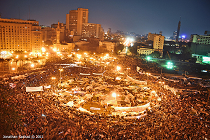 Courtesy: JonathanRashad/Flickr
Courtesy: JonathanRashad/Flickr
As the Arab world remains engulfed in protests, there may be lessons to be learned from other recent democratic converts. Latin America’s growth story may provide the Arab world with some recommendations on how to address socio-economic issues in the post-revolution scenario.
 Courtesy: Pragati
Courtesy: Pragati
The execution of Osama Bin Laden has led to a decline in international military presence in Afghanistan, opening the door for developmental agencies and regional actors to play a more active role. Can India take advantage of this critical juncture and work towards achieving peace in Afghanistan?
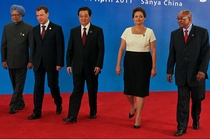 Courtesy: dilmarousseff/Flickr
Courtesy: dilmarousseff/Flickr
As Europe stands united in its support for France's Finance Minister Christine Lagarde as a candidate to head the International Monetary Fund, many have begun to question if BRICS is truly an effective and united bloc. Will they be able to put forth a candidate all emerging countries can support?
 Courtesy: WorldEconomicForum/Flickr
Courtesy: WorldEconomicForum/Flickr
With the post for the head of the International Monetary Fund up for grabs, the emerging market countries are yet to unite and provide a suitable candidate who receives formidable support for his or her candidature. China, however, may boldly question the status quo and step ahead.